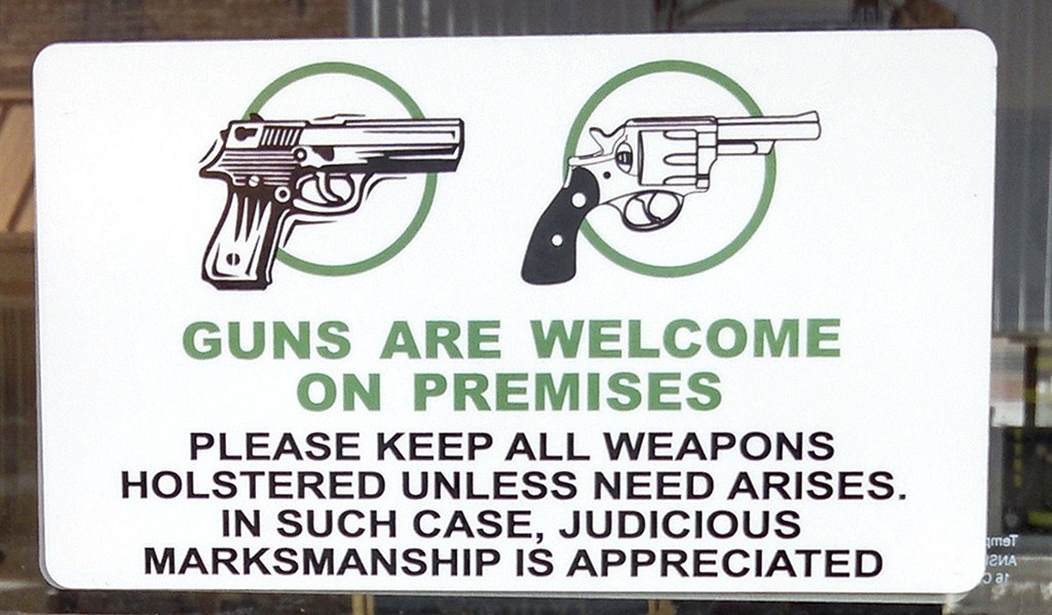It’s a new day in Nebraska, where after years of struggle lawful gun owners can now bear arms in self-defense without having to first obtain a government-issued permission slip.
Gov. Jim Pillen signed LB 77 into law back in April, declaring that the bill upheld the promise made to voters to “protect our constitutional rights and promote commonsense, conservative values” and praising state Sen. Tom Brewer for championing the bill year after year, slowly making progress until the legislation finally had the votes to cross the finish line.
“Nebraskans should not have to pay the government a fee or ask permission for constitutional rights,” said Senator Brewer. “This bill finally delivers on the promises in Nebraska and United States constitutions. I am proud to help Nebraska join twenty-six of our sister states in removing this obstacle to the right to keep and bear arms.”
While the bill was signed into law months ago, its provisions didn’t officially take effect until today, making Nebraska officially the 27th state to recognize the right to bear arms in some form or fashion without the need for lawful gun owners first receive a license.
I’m old enough to remember when there weren’t 27 “shall issue” states, much less 27 permitless carry regimes. This is what progress looks like, even though the state’s largest cities are still trying to put up roadblocks between gun owners and their Second Amendment right to carry a firearm. On Thursday, Omaha Mayor Jean Stothert signed an executive order banning concealed carry on all city-owned and leased property, and Lincoln Mayor Leirion Gaylor Baird issued an executive order of his own on Friday that does the same.
The Lincoln Police Department is asking everyone to familiarize themselves with the new permitless concealed carry law, and enroll in a firearms safety course.
It says knowing how to safely handle guns is critical to safety, as that knowledge may prevent mishaps.
The city also says this new law prohibits it from “regulating the ownership, possession, storage, transportation, sale, or transfer of firearms or other weapons, except as expressly provided by state law. LB77 also renders null and void any local ordinance, permit, or regulation that violates the new law.”
I’ve searched in vain for any evidence that existing state law allows for concealed carry to be banned from the premises of all government-owned or leased property, including parking lots, so it’s unclear to me whether Lincoln and Omaha are courting a legal challenge to the state’s firearm preemption law with their new ordinances. Even if state law expressly allows for these kinds of “gun-free zones”, the Supreme Court took a dim view of overly broad “sensitive places” in the Bruen decision, rejecting New York’s theory that “sensitive places” where the government may lawfully disarm law-abiding citizens include all “places where people typically congregate and where law-enforcement and other public-safety professionals are presumptively available.”
It is true that people sometimes congregate in “sensitive places,” and it is likewise true that law enforcement professionals are usually presumptively available in those locations. But expanding the category of “sensitive places” simply to all places of public congregation that are not isolated from law enforcement defines the category of “sensitive places” far too broadly. Respondents’ argument would in effect exempt cities from the Second Amendment and would eviscerate the general right to publicly carry arms for self-defense that we discuss in detail below.
Put simply, there is no historical basis for New York to effectively declare the island of Manhattan a “sensitive place” simply because it is crowded and protected generally by the New York City Police Department.
It’s true that the Heller decision held that “[N]othing in our opinion should be taken to cast doubt on longstanding prohibitions on the possession of firearms by felons and the mentally ill, or laws forbidding the carrying of firearms in sensitive places such as schools and government buildings, or laws imposing conditions and qualifications on the commercial sale of arms,” but even then the prohibition was limited to government buildings, not the parking lots outside. And now that the Bruen test of text, history, and tradition must be faithfully applied to every gun control law in existence, the historical record shows scant evidence that banning firearms in all government-controlled facilities (local, state, and federal) was commonplace and longstanding at the time the Second Amendment was ratified.
We’ll have to wait and see if any court challenges pop up in the wake of these executive orders, but the actions in Omaha and Lincoln shouldn’t overshadow the fact that lawful Nebraska gun owners can now (mostly) enjoy their right to carry without needless red tape or a government-imposed waiting period. As a resident of shall-issue Virginia, I’m jealous of the liberties that Nebraskans now possess, and I hope that after this year’s legislative elections in the Old Dominion we’ll be in position to soon join them as the 28th permitless carry state in the nation.









Join the conversation as a VIP Member